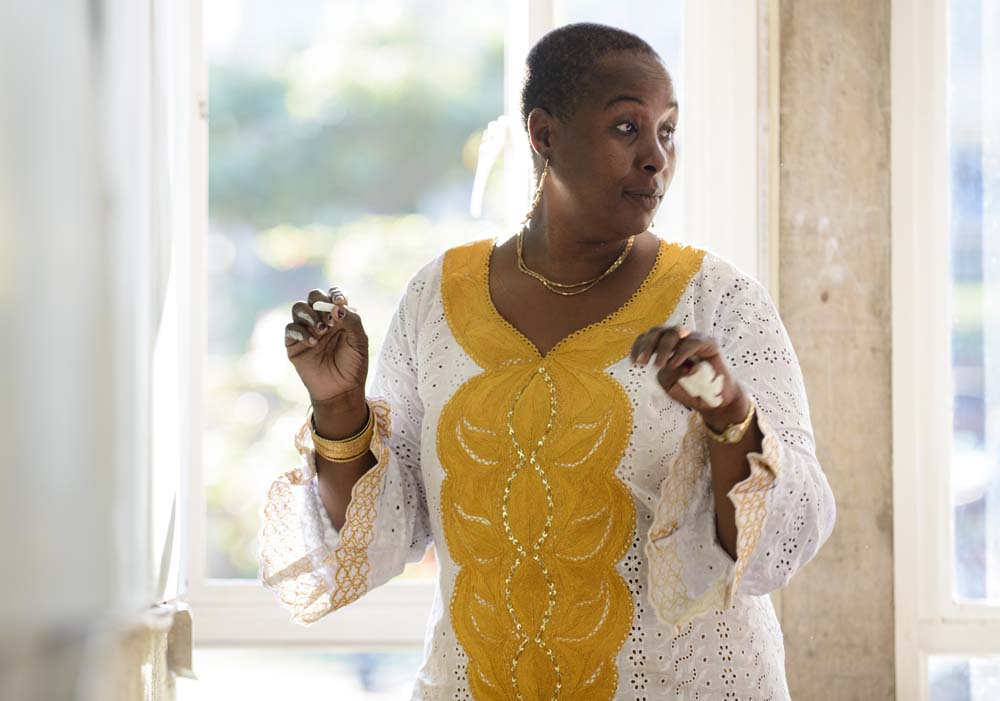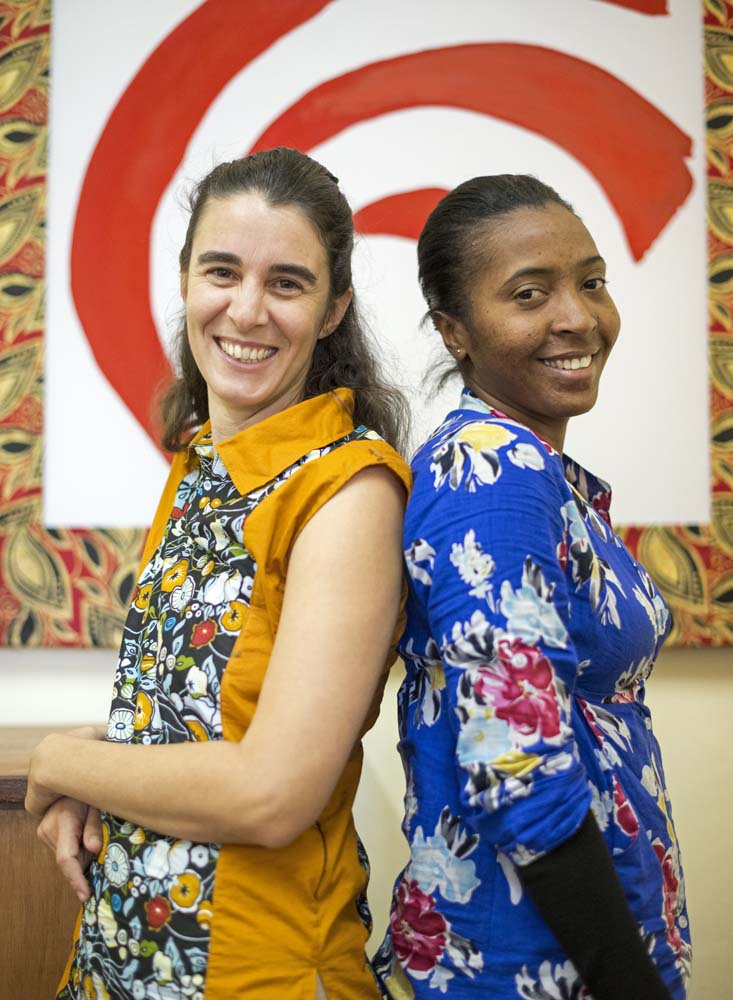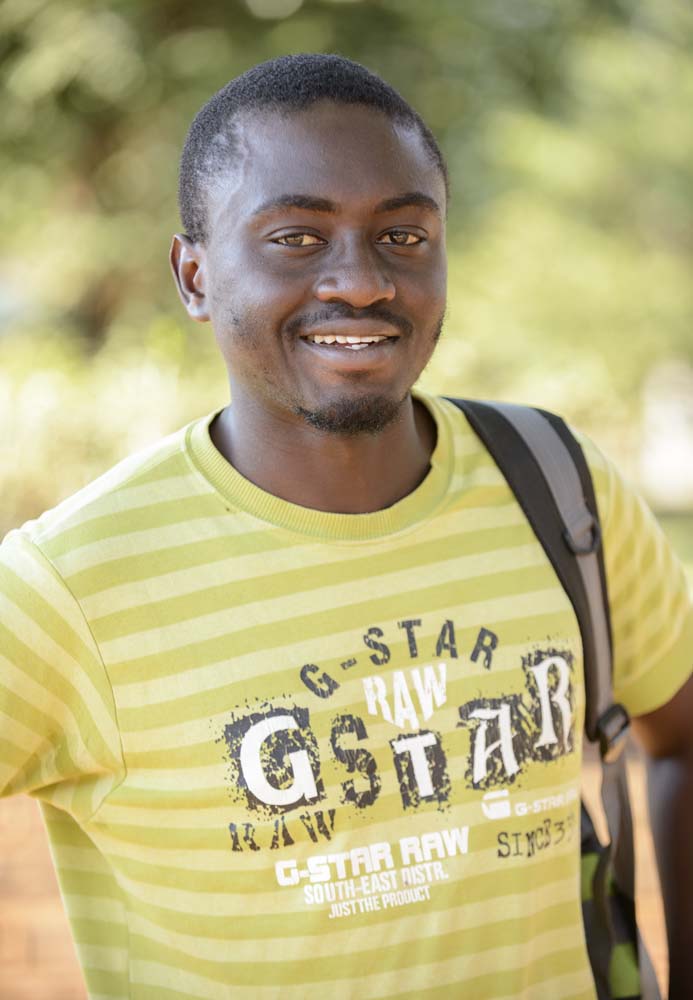Turning taboos into talking points
Clad in a long white and yellow dress with a gold skirt underneath, her hair in a buzz cut, the lecturer faces a packed room of about 70 Malawian college students.
“Is a woman born or made?” English lecturer and human rights activist Jessie Kabwila asks the class.
The students, who squeeze two to a desk or perch atop tables and window ledges, are split on how to answer. There’s a vocal part of the room that thinks the former.
“You think you are born a woman?”
Sunlight pierces a window and glints off Kabwila’s hanging gold earrings and the chain necklace that complements her gold skirt.
“Prove it,” she challenges them.
Unlike most advocates in a country where same-sex relations are illegal, Kabwila does not have to worry about what she says.
She earned national acclaim as an advocate for universities and educational reform, and is now an outspoken advocate for lesbian, gay, bisexual and transgender rights. She has enough political capital, she said, that people respect her even if she’s talking about a taboo subject like LGBT rights.

She uses this capital to influence the mindset of Malawi’s next set of leaders and policymakers – college students.
As a lecturer at Chancellor College in Zomba, a city in the southern region of the country, Kabwila addresses gay rights though many in the Malawian university system shy away from it.
In a recent lecture, she combined gender theory with colonial theory to introduce the class’ next book, “Half of a Yellow Sun,” a war novel by Nigerian author Chimamanda Ngozi Adichie.
Kabwila goes on to tell the class that both women and men are made; their genders are a construct of societal and familial expectations, among other things.
“What if I am transgender?” she asks those who think a woman is born.
She brings up the example of an intersexed Malawian child who did not know which bathroom to use and stopped attending school after facing ridicule. Intersexed people are born with both male and female sexual organs.
Noticing that some of the men in the room might be uncomfortable with the topic at hand, Kabwila calls them out.
“Do not pretend you don’t know what a vagina is,” she says, to more laughs.
But while Kabwila does not shy from the issues, she does make sure to keep them connected to the topic of her literature course.
“Remember – language is the battleground of humanity.”
She also balances the controversial topic with humor and avoids alienating students, peppering her English-language lecture with jokes in Chichewa, the common Malawian language.
“Don’t worry, I’m not going to make this into a ‘gay’ lecture,” she tells the class before moving on to postcolonial theory.
University settings in Malawi are similar to the rest of society in that LGBT rights are a generally taboo subject. Chancellor College has allowed at least one on-campus debate about the issue, but students were not heavily involved.

Galia Boneh has also taught at Chancellor College and founded the Art and Global Health Center Africa, which is affiliated with UCLA’s Art and Global Health Center.
Boneh is originally from Israel and earned her doctorate from UCLA under world arts and cultures professor David Gere, who is involved in arts activism around the globe.
Gere established a “Make Art, Stop AIDS” class at UCLA, and Boneh used a Fulbright scholarship to create a similar class, along with a theater activism program, at Chancellor College. Because the HIV/AIDS epidemic does not have the same association with homosexuality in most countries as it does in the U.S., neither class focuses on lesbian, gay, bisexual and transgender issues.
In one lecture for the class, Boneh said she approached the topic of the LGBT community cautiously to avoid possible hostility from students.
She said she especially has to be careful to avoid the appearance that she, as a foreigner, is trying to push any sort of opinion on her students.
Kabwila, as a Malawian with a strong reputation in other human rights activism, does not have to take those worries into consideration.
From one corner of the room, a student mouths to me, “Having fun?” We had spoken the night before about his views on gay rights, and he had given us some hints about how engaging Kabwila would be.
He considers himself to be among the most liberal students on campus because he thinks gay people should have rights.
He does not approve of men having sex with other men and finds it unnatural. But the country has high rates of poverty, unemployment and HIV prevalence, so there are more important issues to worry about than what two people consent to in their private lives, he said. Plus, acknowledging the gay community might make it less likely for them to sleep with women and transmit HIV to them, he said.
Boneh said her job as an educator is to present an issue and encourage her students to explore the stigmas around it.

One of Boneh’s former students, Mwiza Nyirenda, became interested in Malawian attitudes toward the LGBT community and decided to explore them in a documentary.
He thought of the idea while the students and teachers of Chancellor College were on strike – he was bored and wanted to be productive, so he started to learn filmmaking. Nyirenda identifies as straight, and he said he does not feel strongly for or against gay rights, but he thinks it is important for society, especially college students, to debate the topic, he said.
So Nyirenda and two friends interviewed locals and national leaders about their opinions.
In her afternoon lecture, Kabwila brings the kind of discussion Mwiza sought in his video to the classroom. The discussion between the students and Kabwila has been generally light, punctuated by laughter.
But Kabwila returns to the question of the intersexed child.
“Where does the child go?” she asks. “I know people laugh about these things. But my friends, sexuality is not a joke.” ■
